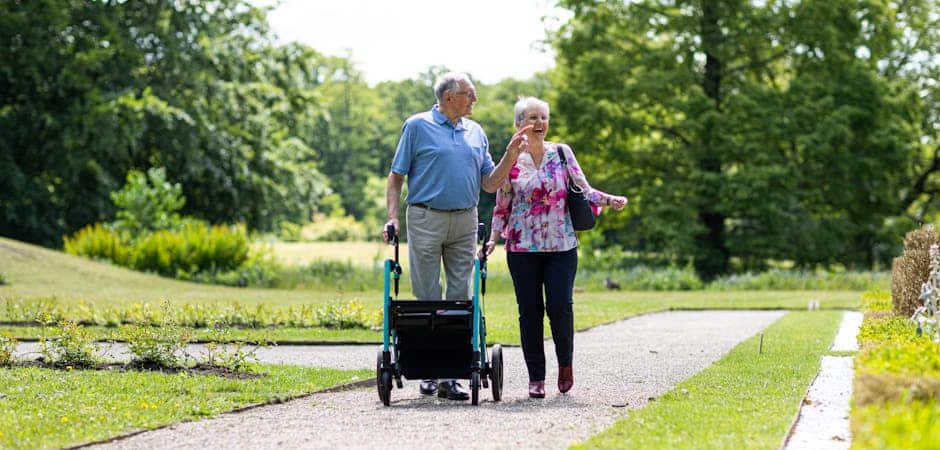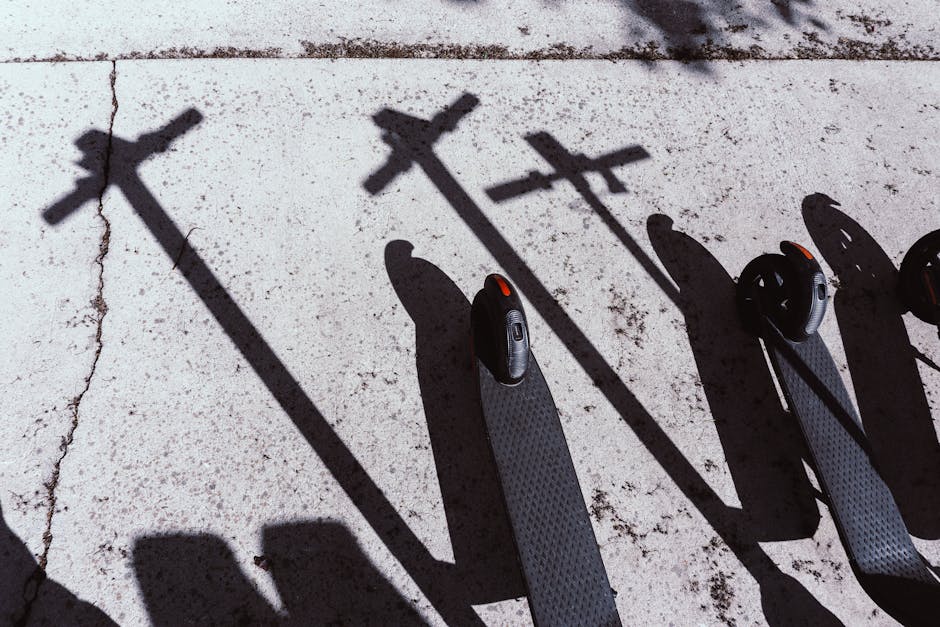423 E. Roosevelt Road, Lombard, IL 60148
630 895 8383

Walking aids for elderly individuals play a crucial role in enhancing mobility, stability, and independence. With aging, many people face balance issues and mobility challenges that can make everyday tasks more difficult and increase the risk of falls. Walking aids such as canes, walkers, and rollators are designed to offer the support and reassurance needed to navigate daily life with confidence.
Key Takeaways:
1. Canes: Ideal for basic support and light balance assistance.
2. Walkers: Provide greater stability and are suitable for more substantial support needs.
3. Rollators: Equipped with wheels, making them easier to maneuver than traditional walkers.
4. Wheelchairs: Essential for individuals needing seated mobility full-time.
5. Mobility Scooters: Perfect for covering longer distances and outdoor mobility.
Insight: “As we age, our bodies undergo various changes that can impact mobility. Understanding these challenges is key to finding the right mobility solutions for elderly loved ones.”
Hello, I’m Sazan Sylejmani, a seasoned pharmacy manager and mobility aid expert. With a Doctorate in Pharmacy and over 80 years of collective experience at Westmont Pharmacy, I’ve guided numerous seniors and their caregivers in choosing the most suitable walking aids for elderly needs, ensuring comfort, safety, and enhanced quality of life.

Choosing the right walking aid is crucial for maintaining independence and mobility. Here are the main types of walking aids for elderly individuals:
Walkers provide exceptional support and stability. They are ideal for those who can stand but need a sturdy device to prevent falls. Walkers can bear up to 50% of the user’s body weight.
Types of Walkers:
– Standard Walkers: No wheels, require lifting to move.
– Two-Wheeled Walkers: Two front wheels for easier movement.
– Rollators: Walkers with three or four wheels, handbrakes, and a seat to rest on. Ideal for those with good upper body strength.
Benefits:
– Great for balance issues.
– Can support significant weight.

Canes are often the first mobility aid seniors use. They help with balance and can bear up to 25% of the user’s body weight. Canes are lightweight and portable, making them easy to use.
Types of Canes:
– Single-Point Canes: Offer light support for slight mobility issues.
– Quad Canes: Four points of contact for better stability.
– Folding Canes: Easy to store and transport.
Benefits:
– Improves balance.
– Lightweight and portable.
Mobility scooters are perfect for seniors who tire easily when walking long distances. They come in various models, including three-wheel and four-wheel versions.
Features:
– Battery-operated with a motor.
– Often have a basket for carrying items.
– Can be customized with accessories like cane holders.
Benefits:
– Ideal for outdoor use and long distances.
– Provides full-time seated mobility.

Wheelchairs offer full-time seated mobility. They are suitable for those who cannot walk or stand for extended periods.
Types of Wheelchairs:
– Manual Wheelchairs: Require upper body strength to propel.
– Power Wheelchairs: Battery-operated, ideal for those with limited upper body strength.
Benefits:
– Provides full-time mobility.
– Suitable for indoor and outdoor use.
Understanding these walking aids for elderly can help you choose the best option for your needs. Each type offers unique benefits to improve mobility and quality of life.
Next, we’ll explore the benefits of using walking aids.
Walking aids are more than just tools; they are essential for enhancing the quality of life for the elderly. Here are the key benefits:
Falls are a leading cause of injury among older adults. Walking aids such as walkers and canes provide stable support, significantly reducing the risk of falls. According to the CDC, falls are the leading cause of injury among older adults. Using aids like walkers and canes can drastically lower this risk by providing stable support.
Mobility aids are designed to reduce strain and pain during movement. For instance, ergonomic canes and rollators with padded handles help distribute weight evenly, reducing pressure on the joints. This is especially beneficial for those with arthritis or other joint issues.
One of the most significant benefits of using walking aids is the increased independence they offer. A senior who loves gardening might benefit from a rollator with a built-in seat and storage compartment, allowing them to carry tools and take breaks as needed. This enables them to continue engaging in activities they love without relying on others for assistance.
Walking aids are designed to minimize the physical strain on the body. Quad canes, for example, offer better stability and comfort compared to regular canes, making them ideal for those who need more support. Additionally, products like wheelchair cushions and alternating pressure mattresses help prevent pressure sores and provide comfort for those who spend extended periods sitting or lying down.
In summary, walking aids provide essential support for balance, pain relief, independence, and reduced strain, making them invaluable for elderly individuals.
When selecting a walking aid for the elderly, stability is crucial. A stable device can prevent falls and build confidence. For those needing maximum support, walkers and rollators are ideal. Walkers, like the Drive Medical Steerable Upright Walker, offer a sturdy base with four legs or wheels, ensuring balance and security.
Assessing the mobility level of the user is vital. For those with limited mobility, a wheelchair or scooter might be the best choice. Wheelchairs provide excellent support and can be used both indoors and outdoors. Knee scooters are perfect for individuals recovering from lower leg injuries, offering mobility without weight-bearing on the injured limb.
For those with moderate mobility, canes or quad canes are suitable. Canes are lightweight and easy to maneuver, while quad canes offer additional stability with their four-pronged base.
Consider where the walking aid will be used most. For indoor use, lightweight and maneuverable aids like canes or standard walkers are ideal. For outdoor use, rollators with large wheels are better suited to handle rough terrain. The Vive 3 Wheel Rollator is an excellent choice for those who need a portable and stable option for both indoor and outdoor environments.
Tip: Always test the walking aid in the intended environment to ensure comfort and ease of use.
By carefully considering stability needs, mobility levels, and environment adaptation, you can choose the right walking aid to enhance mobility, independence, and safety for elderly individuals.
Next, we will explore the frequently asked questions about mobility aids for the elderly to address common concerns and provide further guidance.
The most stable assistive walking device is typically a walker. Walkers provide four points of contact with the ground, offering maximum stability and support. This makes them ideal for individuals who have significant balance issues or need substantial support while walking.
For example, a study highlighted in the Archives of Physical Medicine and Rehabilitation showed that walkers significantly reduce the risk of falls among elderly users. Additionally, rollators—walkers with wheels—are also very stable but offer more mobility for those who need a balance between support and ease of movement.
For individuals who cannot walk, wheelchairs and scooters are the primary equipment used. These devices provide full support and mobility for those who are unable to bear weight on their legs.
Wheelchairs come in manual and electric models, allowing users to choose based on their strength and convenience. Scooters are typically electric and offer greater speed and range, making them suitable for longer distances and outdoor use. Monty’s Home Medical offers a variety of these options to cater to different needs and preferences.
The most common and standard walking aids for seniors include:
Each of these aids has its own set of features and benefits, making it crucial to choose the one that best fits the user’s specific needs. For more detailed guidance, consult with a mobility expert or visit our store for personalized advice.
At Monty’s Home Medical, we understand that every individual’s mobility needs are unique. Our commitment to personalized service ensures that we take the time to listen and understand your specific situation. This allows us to recommend the best walking aids for elderly individuals, tailored to your lifestyle and mobility goals.
Our team of experts is not only knowledgeable about our products but also well-versed in the challenges faced by the elderly. Whether you’re looking for a simple cane or a more advanced mobility solution, we stay updated with the latest advancements to offer you the best options available.
Safety and comfort are our top priorities. Products like the Step2Bed and various mobility scooters come with features designed to enhance the safety of seniors, such as adjustable heights, padded grab bars, and safety lights for nighttime use. Our experts can guide you in selecting the right features to ensure a safer and more comfortable walking experience.
Choosing Monty’s Home Medical means opting for a partner who will stand by you as you navigate the challenges of reduced mobility. Our dedication to quality and customer satisfaction is reflected in everything we do. From the careful selection of products to our compassionate customer service, we are here to help you or your loved ones live a more independent, safe, and fulfilled life.
Explore our comprehensive range of mobility aids and benefit from our personalized service and expert guidance. Visit our store to find out more about how we can assist you in achieving better mobility and enhanced independence. Let us be your guide to a more mobile and independent life.